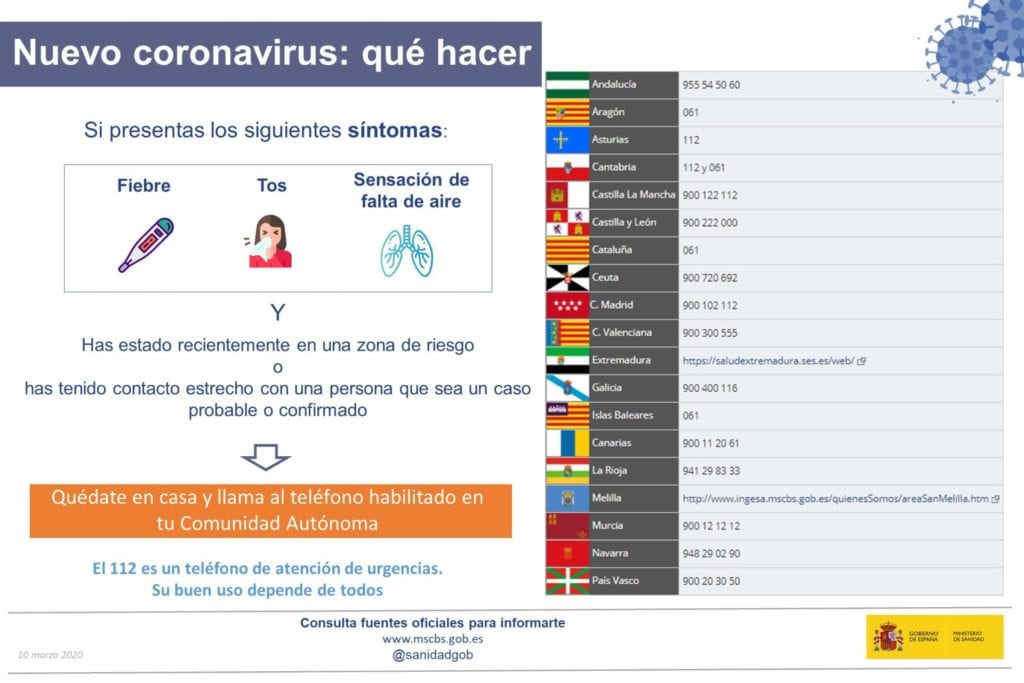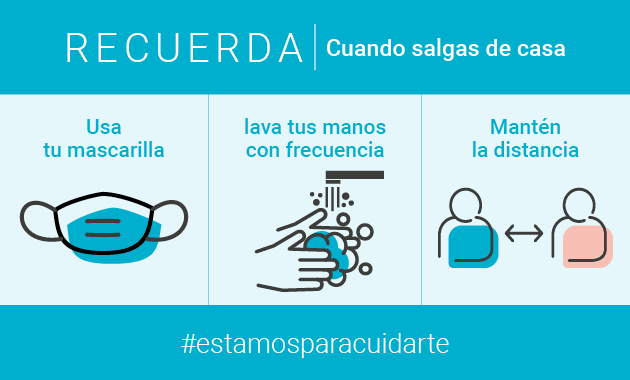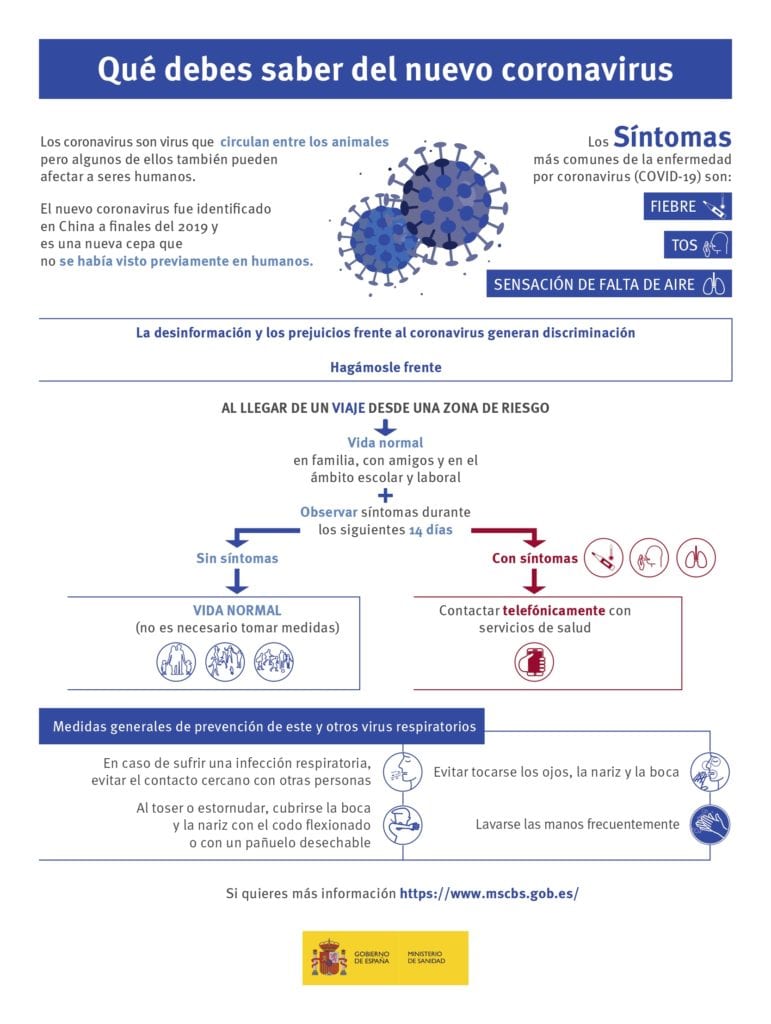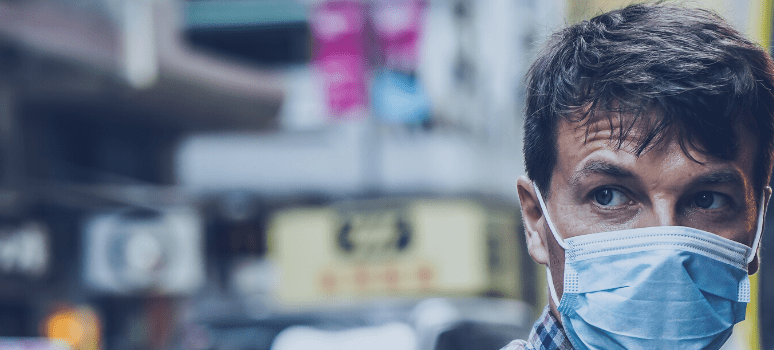In a few days, the spread of covid-19 is putting our health system and society as a whole to the test. Living under containment measures is intended to lower the infection curve, prevent deaths and avoid the collapse of the health system.
Trade fairs and sporting events postponed, schools closed, patients isolated and quarantined, air routes cancelled. ERTEs... these are some of the visible consequences of COVID-19, a virus we generically call the coronavirus, which is leaving behind thousands of infected people and hundreds who have died.updated data from the Ministry of Health-.
What a few days ago was a call for compliance with preventive measures has become a state of alert in the country with severe restrictions on mobility and relations to curb the spread of the virus: social distance and hygiene are, so far, the most effective actions.
The alert was triggered on 31 December 2019, in the Chinese town of Wuham, and since then almost 3,000 people have died in China, between 2 and 4 per cent of those infected. Closer to home, Italy was the first European country to suffer the consequences of the spread of this virus, which has now spread to all countries and continents. We are aware that the figures are frightening but we know that taking precautions and by following the slogan #YoMeQuedoQuedoenCasa, we can slow down the infection curve. However, special attention should be paid to older people, those with autoimmune diseases and those who are immunosuppressed due to another type of illness.
The so-called "coronavirus" has been compared to influenza, although it is not - as the World Health Organisation makes clear. In fact, their behaviour is not known and concerns about its rapid spread. If all precautionary measures are being taken, it is to avoid its rapid spread, which could, for example, overwhelm hospitals (as with the common flu).
Moreover, such measures give the scientific community time to investigate. Therefore: extreme caution.
But let us clarify some terms. When we talk about epidemicIn the case of the flu, we are talking about a disease that flares up during a certain period of time, like the common flu in Spain. A pandemicis an epidemic disease that spreads to many countries or that attacks almost all individuals in a locality or region. In either case, it refers to the level of spread, not its severity.
The global risk level of COVID-19 infection decreed by the World Health Organisation (WHO) is already pandemic.
What symptoms should you consult specialists about?
The typical and most frequent symptoms of covid-19 are:
- Fever
- Dry cough
- Fatigue and shortness of breath - this is the symptom to go to the emergency room.
- To a lesser extent, headache and sore throat, myalgia, chills, sputum production, nasal congestion or diarrhoea may occur.
In 80 percent of cases, these symptoms are mild. In any case, when the symptoms coexist with the fact of having been in an area at risk or with a person with a confirmed diagnosis, the best thing to do is to stay at home and call the telephone number set up by the authorities in each autonomous community.

What preventive measures should I take?
Preventive measures are similar to those to be taken for influenza and other respiratory diseases and, in any case, without prejudice to the measures to be taken in the event of a serious illness. measures taken by the Spanish Government in decreeing a state of alert.
- Frequent hand washing or hand sanitising (washing with soap and water or alcoholic solutions), especially after direct contact with sick people or their environment.
- Avoid standing closer than one metre of people with potential symptoms.
- Cover your mouth and nose with tissues when coughing or sneezing. and wash your hands afterwards.
- The use of masks is only recommended for healthy persons in the care of affected persons or, for affected persons, to avoid infecting them.
- Avoid travel to risky countries and attendance at mass events.
The Ministry of Health offers updated information on this link

Is there a vaccine against COVID-19?
So far, no specific treatment or vaccine has been developed to prevent infection. Treatment consists of offer support to the sufferer for symptoms, which can last between two to six weeks, in the most serious cases.
In any case, the population at risk is made up, as in ordinary influenza, of the elderly and children and those who are immunosuppressed as a result of illness.
In this link you will find all the information and recommendations of the Ministry of Health.

**Read our article on viral infections and what we can do at home.


